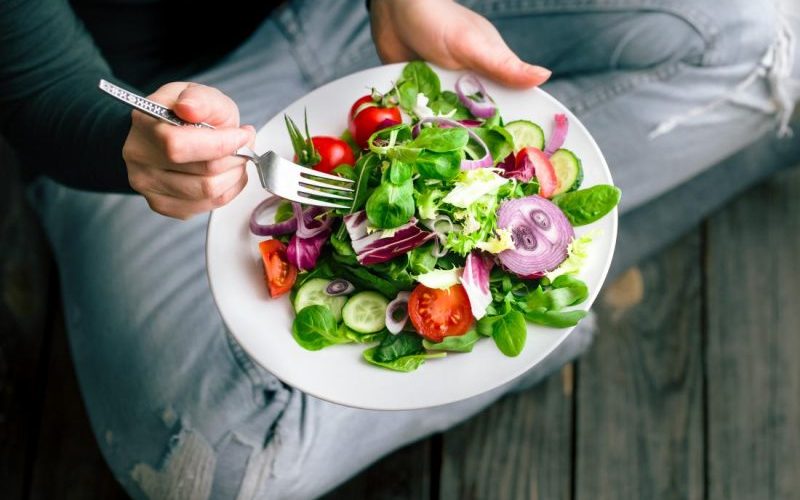A woman’s life is associated with many physiological, anatomical and psychological changes during menarche, reproductive phase, pregnancy, menopause and post-menopause. Over the centuries, women’s role in the society from being house wives to multi-tasking females who have to earn for the family as well as doing household chores. These changes in the society have led to tremendous health problems.

Ayurveda and Women Health:
Ayurveda recognizes the changes in women’s body throughout life and avails simple methods to maintain healthy life. Ayurveda not only defines all epochs of woman’s life like Bala, Kumari, Ritumati, Garbhini, Prasava, Sutika etc. but also the health status in regards to Dosha and Dhatu variation and preventive steps in the form of diet and lifestyle modifications to achieve optimum health during all these phases.

- Nutrition for Girls in Childhood and Early Teens: Two nutrients are particularly important for girls in addition to diet rich in fruits, vegetables, whole-grains, low fat dairy products etc. These are:
- Calcium: Getting enough calcium is particularly important during early childhood and adolescence because in these phases, bones are absorbing calcium.
- Intake of Vitamin D is also important as the body needs Vitamin D in order to absorb calcium.
- The natural sources of calcium are low fat dairy products. Milk, yogurt and cheese contribute most of the calcium in the diet.
- In addition, some vegetables such as kale, broccoli are also good sources of calcium.
- Iron: The element iron becomes especially important when girls begin to menstruate.
- Girls need about 8 mg of iron a day.
- Between the age of 14-18 years, the recommended iron intake is 15 mg.
- The good sources of iron are beans, lentils, pomegranate, wheatgrass etc.
- Calcium: Getting enough calcium is particularly important during early childhood and adolescence because in these phases, bones are absorbing calcium.
Ayurveda recommends the intake of foods that are natural and pure as they offer the most valuable nutrition.
- ½ teaspoon of dry roasted fenugreek should be consumed regularly. It helps in balancing the hormones in a natural way, cures pimples, prevents premature greying of hair and improves fertility.
- A spoon of desi ghee or sesame oil in the diet helps in relieving menstrual cramps and works wonder for hair and skin.
- Nutrition for Women during Childbearing Years:
- Folic Acid: This form of B vitamin is helpful in preventing neural tube defects.
- Sources of folic acid include leafy greens.
- Vitamin B12: Like folic acid, B12 is essential for nervous system development and function.
- Pregnant women who are vegans or vegetarians may fall short on B12, since it is an animal protein.
- Omega 3: These essential fatty acids, EPA and DHA, have role in building healthy brain and nerve cells.
- Omega 3 fatty acids have been shown to reduce the risk of heart disease.
- Folic Acid: This form of B vitamin is helpful in preventing neural tube defects.
Ayurveda recommends intake of sattvic diet as it increases the qualities of purity and clarity in the mind.
- Before bed, take a regular dose of warm milk and add one teaspoon of desi ghee to balance the Vata dosha.
- Healthy fats should be taken during pregnancy to balance the Vata dosha which is dominant during this phase. Healthy fats include coconut oil, olive oil, nuts such as almonds, walnuts, cashews, seeds such as sunflower and pumpkin seeds. They also help in building baby’s immunity and vitality.
- Nutrition requirement during Menopause: In addition to giving importance to health during menopause, women need support from families as well.
- Ayurveda offers various effective remedies when there are difficulties during menopause.
- In addition to specific herbal formulas, massage with warm oil and warm nourishing food is important.
- The food must contain some cow ghee (clarified butter), along with green leafy vegetables.
- Intake of sweets should be avoided.
- For rejuvenation during menopause, almond milk blended with 2-4 pieces of dates is a wonderful drink.
- Intake of sour, bitter and astringent tastes are advised.
- Calcium and Vitamin D are also crucial elements in women’s diet during menopause.
- For pitta type individuals, intake of coconut or clarified butter is good and for kapha type individuals, mustard oil is good.
- Exercise, Yoga and Meditation should be the part of lifestyle.
Thus, Ayurveda has provided a good dietary regimen for women in every stage of life for restoring and maintaining balance of all the three doshas.
Disclaimer:-
This article is not a substitute to the standard Medical Diagnosis or personalized Ayurvedic Treatment! It is intended only for Information!
For experts consultation, please write us at care@blessayurveda.com.
2,866 total views, 4 views today